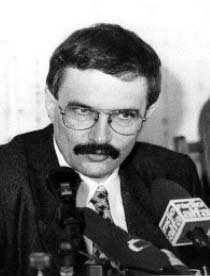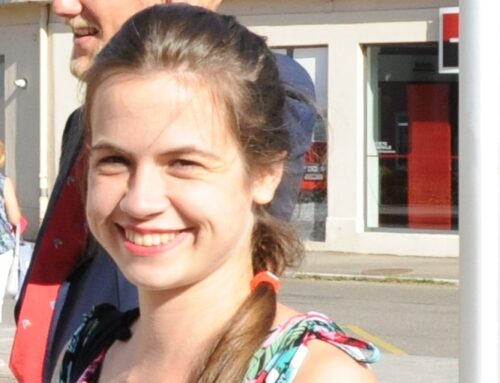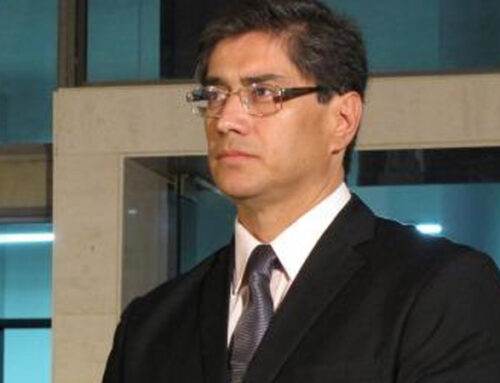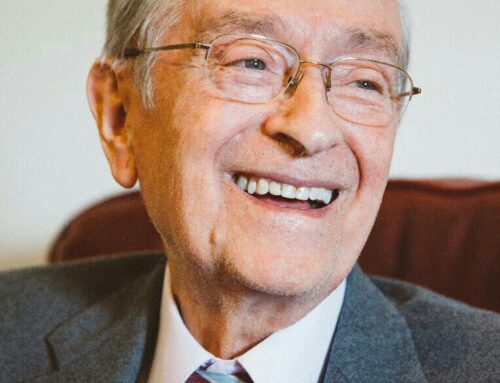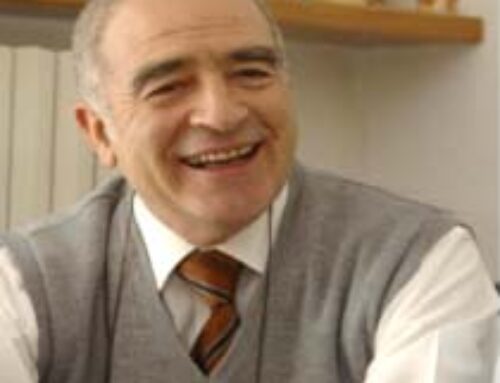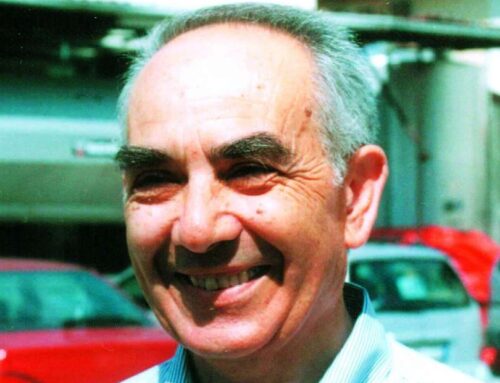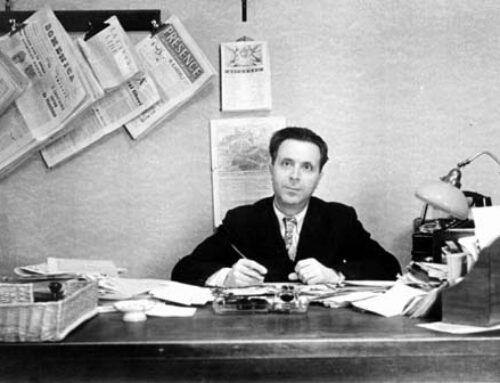Josef Lux
“He was not only a great politician, but a great man, always and everywhere.”
Petr Pithart, President of the Senate
Josef Lux was born in 1956 in Ústí nad Orlicí (Eastern Bohemia). He studied agronomy in Brno and worked in this field until 1990.
Since 1982 he became a member of the Czechoslovak People’s Party and covered the position of deputy secretary in 1989. In 1990 he was co-opted to the Federal Assembly and elected as general secretary of his party. In 1992 he was again a member of the Federal Assembly, Minister of Agriculture and Vice-President of Klaus’ first government.
After the elections in 1996 he became a member of parliament and again vice-president in Klaus’ second government and Minister of Agriculture. In 1998 Vice-President and Minister of Agriculture also in Tošovský’s government and member of parliament. For the first time in opposition.
He died of leukemia on November 21, 1999.
We report below what his wife Vera Luxova said to a group of Italian MPs to present it
Dear ladies and gentlemen, dear friends, it is with a certain tremor that I am here today to give you something of my husband Josef Lux’s life, but I am sure you will understand me. As has been said, after the so-called Velvet Revolution of 1989, in the various stages of the democratic construction of our country, Josef held some important political posts, then in 1998 he became seriously ill and the following year he passed away. Still in the 1960s – we were very young – Josef and I felt the attraction to live for something great. God did not leave this yearning unanswered, and in fact, he made us encounter Chiara Lubich’s spirituality.
The light of her very modern charism illuminated our whole life and, I think, also prepared us for the stage of political commitment. Josef said he was quite pragmatic and, precisely for this reason, the encounter with an authentically Christian life was the best offer – so he said – he could receive. And I, now, realize that the gift of this light, Josef, without too many words, transmitted it in his daily life.
After the “velvet revolution”, full of enthusiasm we participated in political demonstrations even with our youngest child in a wheelchair. Then, due to special circumstances, Josef was co-opted into parliament by the Christian People’s Party and immediately afterwards, unexpectedly, elected secretary general of the party. Suddenly our youthful dream of “transforming the world” was no longer far away. If God, as we believed, had a plan of love for us, for our country, for all humanity, this new commitment was a challenge to work with Him.
Josef often said: “For the Christian there is no service to God without service to man and service to man is at the same time service to God. A journalist wrote about him: “His thought was not far from action. He knew how to build bridges and sustain good, but also how to say ‘enough’ and fight against evil.”
Although he was always overloaded, he tried to meet even the simplest needs. On the street, if anyone needed help, he would stop the car. In church – when the organist was sick – he would play the organ. During the government sessions, noticing the tiredness of some of his colleagues, he would book his coffee.
At Christmas, if I couldn’t do all the shopping, he would go, as if nothing had happened, to the great satisfaction of those husbands who saw “Mr. Minister”, as one of them, with the bill in his hand. When he was minister, on the day of his chauffeur’s wedding, Josef made him the
The current president of the Senate, Petr Pithart, described him as a politician who, I quote: “literally grew up before our eyes, becoming a great statist. (…)
And he could play the accordion in such a way that even the grouchy ones could sing.” Yeah, that was typical of Josef, too. In fact, he didn’t miss any opportunity to entertain his colleagues, just as he did with us at home. A journalist with different political beliefs wrote about him: “Public relations experts could perhaps say that Josef Lux knew how to move, how to find the weakness even of journalists. But I think – continues the journalist – that he never looked for anyone’s weak point. Rather, he was trying to make the relationships between those who, with their ideological controversies, influence public life more human. He made sure that they understood each other and simply loved each other.” So far the journalist.
In 1998 Josef got sick. In an interview he confessed: “I try to be strong, but I don’t always succeed: I’m not a 100% optimistic machine… My most intimate security is the experience with God.”
Another time, even in public: “I am convinced that God is Father, and the conversation with Him frees me, because I can share my concern with Him and be sure that He gives me the necessary strength. This new period of his life aroused a great wave of solidarity: Josef received literally hundreds of letters. But this would be a whole other chapter.
I would like to conclude with the words that President Havel used to speak about him: “Josef Lux had something in him that transcended him… He was able to rise above partial interests in order to put them in harmony with those of all. Let us accept his death as a challenge to cultivate the most beautiful values he incarnated.”

